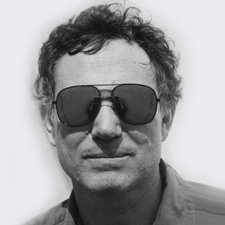The Eighty Yard Run: Difference between revisions
No edit summary |
|||
| Line 53: | Line 53: | ||
== External Links == | == External Links == | ||
[[Category:Serious_Monologue]] | [[Category:Serious_Monologue]] | ||
[[Category:Absurd_Monologue]] | [[Category:Absurd_Monologue]] | ||
[[Category:Live]] | [[Category:Live]] | ||
[[Category:1978]] | [[Category:1978]] | ||
Revision as of 12:15, 16 February 2021
| Series | |
|---|---|
| WBAI And NPR Playhouse | |
| Original Broadcast Date | |
| 1978 | |
| Cast | |
| Joe Frank | |
| Format | |
| Narrative Monologue, 1 hour | |
| Chronology | |
| Preceeded by by: | Jewish Blues |
| Followed by: | Early Stories From NPR Playhouse |
"Now the story of my, as I like to call it, my infamous eighty yard run, is a rather twisted, convoluted tale."
The 80 Yard Run is the name of a program Joe Frank produced as part of the series WBAI And NPR Playhouse.
Synopsis
- Boxing - a small boxer fights a very large boxer.
- Bullfighting - the first bullfighter to show fear, and his final dedication.
- Iowa city - the Athens of the midwest.
- Football in Iowa.
- An erotic encounter in a crowded theater.
- An amateur football game with no rules.
Interesting Facts
Music
- "Son of Stiff Neck" - Larry Coryell & Steve Khan (from "Two for the Road", 1977)
- "Hydra" - Grover Washington Jr. (from Feels So Good, 1975) | YouTube
Commentary
Please see guidelines on commentary and share your personal thoughts in this section.
Bob Carlson from KCRW
"The 80-Yard Run was the first Joe Frank program I ever heard. It was produced back in 1977. It confused me and scared me a little, because while it was hypnotizing, it was also unsettling. Part of it seemed like autobiography, part of it was about boxers of the 1950s, and the end just spun off into a surrealistic dream. In other words, it had some of the same elements that Joe continued to perfect during his decades of work.
"I know that Joe didn’t like The 80-Yard Run very much. His is voice higher than his later shows, the sound mix isn’t always perfect, and Joe even takes a break to get a cup of tea halfway through. But I like the roughness of that very early episode. It shows Joe’s creativity while it was still percolating, while he was still getting a handle on what he was doing." [1]
Ira Glass
“I felt everything I understood about radio was broken in an instant,” Glass says, “when he said, ‘I am going to fix myself a cup of tea, and be right back in a moment.’ And there is this break” [2]
